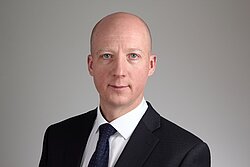Medicine - second-cycle professional higher education study program
Programme level: second-cycle professional higher education
Language of instruction: English
Study form and duration: full-time - 12 semesters
Credits: 360 ECTS
Obtainable degree or qualification: Medical Doctor`s Degree
Number of study places for admission in 2026/2027: Study places for tuition fee - 35
Tuition fee per year: 11 850 EUR for EU/EEA/Swiss citizens, EU Long-term resident permit holders and their family members. 11 850 EUR for citizens of other countries
Study location: Riga
- The study program is based on Scandinavian experience and is based on the principle that the student is the center of studies;
- Student groups are small and training is personalized;
- The study program is comprehensive, because, unlike specialized universities, it offers an additional choice of courses, giving the opportunity to gain knowledge in other fields of science, such as foreign languages, psychology, economics, and law, which allows young professionals to compete in the labor market more successfully;
- As the UL is a research university, students have the opportunity to get involved in scientific projects from the 1st year of studies;
- Intensive practice for prospective physicians begins in the 3rd year of studies, successfully combining theoretical and practical training. The time of practice in hospitals is not only longer than in other universities, but the training is individual and involves real work with the patient, not just observations.
Act. Program Director

Assoc. Prof. Arnolds Jezupovs
The study curriculum is divided in 3 parts: A part (mandatory subjects), B part (mandatory selection) and C part (electives).
During your studies you will have to take A part subjects worth 333 ECTS (222 Latvian credit points) – Normal anatomy, Chemistry, Introduction to cell biology, Medical Latin, Introduction to medical studies, Psychology and basics of psychiatry, Physics, General and special histology, Basics of genetics, Basics of biochemistry, Medical embriology, Human physiology, Physical and sports medicine, Medical biochemistry, Microbiology, Parasitology, Immunology, General pathology, Molecular genetics, Pharmacology, Propaedeutics of Internal diseases, Environmental protection, Visual diagnostics, Principles of surgery, Internal diseases, Pathology of organs and systems, Obstetrics, Dermatovenerology, Public health and epidemiology, Pediatrics, Gynecology, Infectious diseases, Surgery, Neurology, Urology, Medical history and ethics, Narcology, Ophtalmology, Otorhinolaryngology, Oncology, Radiology, Forensic medicine, Specific Considerations of Surgery and Anesthesiology, Psychiatry, Neurosurgery, Orthopaedics.
B part subjects are worth 15 ECTS (10 Latvian credit points), and C part courses – 12 ECTS (8 Latvian credit points).
During your studies you will also have practice in different areas: Basics of Clinical care (5th semester), Clinical practice (5th, 7th, 8th, 10th, 11th semesters), Emergency medicine and basic life support (6th semester), Practice of Family medicine (12th semester), Practice of Internal diseases (12th semester), Practice of surgery (12th semester).
It is possible to spend a certain study period at another university abroad within the framework of Erasmus+ and other exchange programs.
Medical doctors may work in healthcare institutions, pharmaceutical companies, scientific institutions, and government institutions.
Graduates can continue their studies in medical residency and work under the supervision of a practicing physician to obtain a medical speciality or enter doctoral studies to do research (PhD).
Admission Requirements for Foreign Nationals with Secondary Education Completed Outside Latvia:
EU/EEA/Swiss citizens and EU long-term residents:
- General secondary school diploma
- English language proficiency
- Grades in Biology and Chemistry or Natural sciences must be no less than 6 on a 10-point grading scale;
Non-EU/EEA/Swiss citizens and Non-EU long-term residents:
- General secondary school diploma;
- English language proficiency;
- Grades in Biology and Chemistry or Natural sciences must be no less than 8 on a 10-point grading scale;
- The average grade on the secondary education certificate across all subjects must be at least 6 on a 10-point grading scale
- All grades must be passing (at least 4 on a 10-point grading scale)
- SAT (Scholastic Assessment Test) overall score no lower than 1200
As part of the admission process, applicants will be required to participate in an online interview.
*Information on 10 points grading scale
Admission selection criteria:
- Final grade in English 20%;
- Final grade in Chemistry 40%;
- Final grade in Biology 40%;
OR – if the applicant hasn’t studied either Chemistry or Biology - Final grade in Natural sciences 80%;
Admissions open: 1 January 2026
Admission Requirements for Latvian Citizens/Non-Citizens and Foreign Nationals with Secondary Education Completed in Latvia:
For persons who have completed secondary education in Latvia from 2004 onwards:
- CE in Latvian language;
- CE in Physics or CE in Chemistry, or CE in Biology;
- CE in English language at least level B2;
- CE in Mathematics*;
- Average score of all CEs completed by the individual
* For persons who have completed secondary education before 2008, the centralised examination in mathematics may be replaced by the annual mark of the secondary education document in mathematics (or the average mark in algebra and geometry).
For persons who completed secondary education before 2004, for and for persons with special needs:
- Final grade in Chemistry (at least 60% or 6 on a 10-point grading scale);
- Final grade in Biology (at least 60% or 6 on a 10-point grading scale);
OR – if the applicant hasn’t studied either Chemistry or Biology - Final grade in Natural sciences (at least 60% or 6 on a 10-point grading scale);
- final grade in English language no less than 6 on a 10-point grading scale (can be substituted with an internationally recognised English-language test result at a minimum of level B2);
Information about admission:
Email: studies@lu.lv

 CONFERENCE
CONFERENCE